View all Standards for British Columbia (2018)
Adapt learned skills, understandings, and processes for use in new contexts and for different purposes and audiences
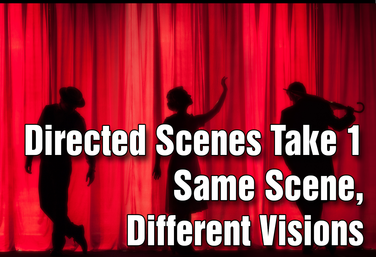
UNIT
Part of the Middle School Curriculum
Unit Six: Directed Scenes Take 1: Same Scene, Different Visions
by Lindsay Johnson
Students will now start applying the skills they’ve learned thus far in the context of existing, fleshed-out scripts.
They will also have opportunities to shift from actor to director and hone such skills as collaboration, self-confidence, and problem-solving which can be used in many other areas of their lives.
Read More
about Unit Six: Directed Scenes Take 1: Same Scene, Different Visions
Read Less
about Unit Six: Directed Scenes Take 1: Same Scene, Different Visions
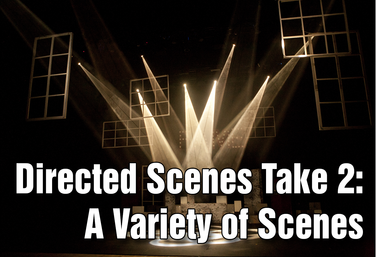
UNIT
Part of the Middle School Curriculum
Unit Seven: Directed Scenes Take 2: A Variety of Scenes
by Lindsay Johnson
Students will have another opportunity to participate in student-directed scenes, only this time each director will be assigned a different script, and actors for each group will be chosen by the teacher based on individual strengths and challenges, rather than holding auditions.
Actors will take a deeper dive into character physicality and use of levels in staging this unit. Directors will continue to create a set design and block the scenes, adding props as well in this unit.
The unit culminates in actors presenting their directed scenes to the class.
Read More
about Unit Seven: Directed Scenes Take 2: A Variety of Scenes
Read Less
about Unit Seven: Directed Scenes Take 2: A Variety of Scenes
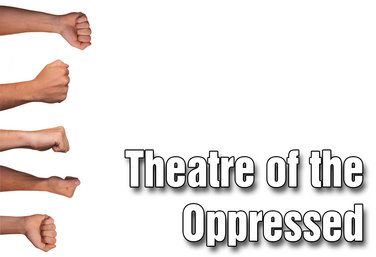
UNIT
Part of the Middle School Curriculum
Unit Eight: Theatre of the Oppressed
by Lindsay Johnson
Students will have a chance to merge their understanding of scene elements with their improvisation skills in this final unit based on Augusto Boal’s Theatre of the Oppressed. Theatre of the Oppressed is a style of theatre specifically created to highlight the injustices of power and oppression in society and to problem-solve ways to bring about change.
Starting with image theatre techniques to identify issues of power and oppression, students will then use forum theatre to create scenarios of oppression taken from their own lives and improvise realistic solutions.
The unit culminates in a performance in which students participate as both actors in a scene they create themselves and spect-actors in scenes created by their peers.
Read More
about Unit Eight: Theatre of the Oppressed
Read Less
about Unit Eight: Theatre of the Oppressed
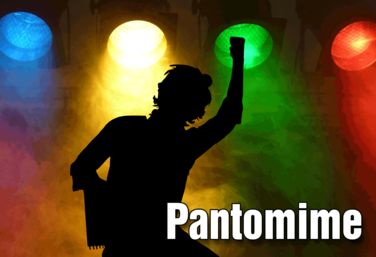
UNIT
Pantomime
by Angel Borths
Teacher Angel Borths developed this unit when she was looking for lessons to teach the basics of pantomime in the classroom.
This unit culminates in a finished product for performance, either for peers, or for theatre festivals. The rubrics and written work for this unit take planning and preparation for performance into account. The exercises can be pulled out and used independently, but work best when used to build toward a finished product. You can also pull the ground plan and stage directions lesson plans to use with playwriting or directing lessons.
Read More
about Pantomime
Read Less
about Pantomime

UNIT
Part of the Drama Two Curriculum
Devising
by Corinna Rezzelle
While the Drama Two Curriculum has a focus on acting, it’s always important to include a unit on the technical theatre skills that are necessary to any production. Students will also be able to use what they’ve learned in this unit in their upcoming devising project.
Students will begin by exploring design for the stage by experimenting with line, shape, texture, size, and color. They will expand their understanding of stage properties and scenic flats. They will then apply their knowledge of these building blocks of design to create a high-concept design for a miniature “stage.”
Read More
about Devising
Read Less
about Devising
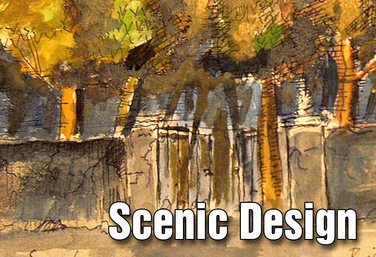
UNIT
Part of the Drama One Curriculum
Scenic Design
by Karen Loftus
This unit will focus on the basics: what is scenic design? How do the scenic designer and director collaborate? What is the process that the scenic designer goes through? The unit will also explore basic drafting techniques, and rendering techniques.
Based on what they learn, students will create a ground plan and a rendering. Please refer to the Pacing Guide for more details and ways to supplement with other DTA materials.
Read More
about Scenic Design
Read Less
about Scenic Design

PD COURSE
21st Century Skills Through Devising
by Allison Williams
Allison Williams leads the course: 21st Century Skills Through Devising. This course covers what devising is, why to do it, how to do it, and how your students can master the 21st Century Skills of collaborations and cooperation, critical thinking, creative thinking through devising.
High school is a great place to try devising with your students. But it’s not something you want to throw at your students without any preparation. Framework is important and this course takes you through a number of exercises you can take into the classroom tomorrow to help build a place of physical safety, a place where students work at making a lot of choices instead of waiting for the perfect choice, and a place where students feel comfortable making creative choices. The material also reviews the process of putting together a show from the idea/research stage to editing, to giving feedback.
Your students have what it takes to create their own material, collaborate with each other, and have a unique theatrical experience!
Read More
about 21st Century Skills Through Devising
Read Less
about 21st Century Skills Through Devising
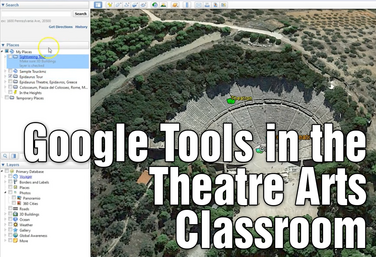
PD COURSE
Google Tools in the Theatre Arts Classroom
by Anna Porter
Have you been wanting to find some new ways to enhance your classroom with technology? Have you been told you need to integrate technology in your classroom but don’t know where to start or what would even make sense to use in the drama classroom?
Whether you want to find some new ways to diversify your instruction and assessment, provide new resources and opportunities for your students, or simply needs some help with organization and communication, Google Tools has a treasure trove of resources ready for you to use today.
Instructor Anna Porter covers the tools of Google Forms, Photos, Calendar, Earth, Custom Search and Sites. Each lesson has video examples of how to use the tools as well as tips and resources for each module.
Read More
about Google Tools in the Theatre Arts Classroom
Read Less
about Google Tools in the Theatre Arts Classroom
View all Standards for British Columbia (2018) Standards Master List